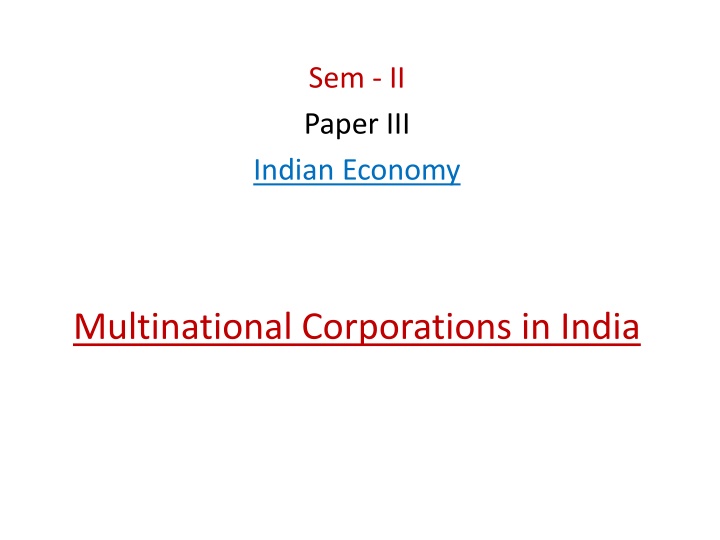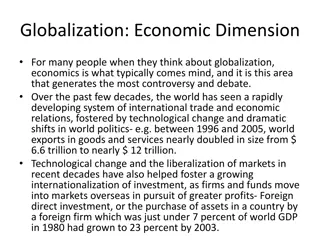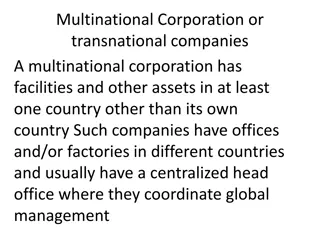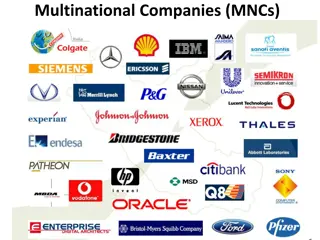Multinational Corporations in India: Overview and Impact
This article discusses the presence of top MNCs in India, reasons for their growth, expansion processes, and disadvantages. It also provides references for further reading.
Download Presentation

Please find below an Image/Link to download the presentation.
The content on the website is provided AS IS for your information and personal use only. It may not be sold, licensed, or shared on other websites without obtaining consent from the author.If you encounter any issues during the download, it is possible that the publisher has removed the file from their server.
You are allowed to download the files provided on this website for personal or commercial use, subject to the condition that they are used lawfully. All files are the property of their respective owners.
The content on the website is provided AS IS for your information and personal use only. It may not be sold, licensed, or shared on other websites without obtaining consent from the author.
E N D
Presentation Transcript
Sem - II Paper III Indian Economy Multinational Corporations in India
Multinational Corporations Multinational Corporations (MNCs) are huge industrial organizations which extend their industrial and marketing operations through a network of their branches or their Majority Owned Foreign Affiliates (MOFAs). MNCs are also known as Transnational Corporations (TNCs). MNCs extend their activities in number of products/services and over a number of countries.
Top 20 MNCs in India 11. Reebok International Limited 1. Microsoft Corporation 12. Vodafone 2. International Business Machines 13. Tata Group 3. Nestle 14.Unilever 4. Procter and Gamble 15. Samsung 5. Coca Cola 16. Amazon 6. PepsiCo 17. Aditya Birla Group 7. Sony Corporation 18. Google 8. Hewlett Packard (HP) 19. Cognizant 9. Apple Inc. 20. Infosys 10. Sun Pharmaceutical Industries Ltd.
Reasons for the Growth of MNCs Expansion of market territory Financial superiorities Managerial superiorities Marketing superiorities Technological superiorities Product innovations
Process of Expansion of MNCs Financial Collaborations Technical Collaborations
Disadvantages of MNCs/FDI Payment of dividend and royalty outflow of Foreign Exchange. Distortions of economic structure Political interference Technology transfer not necessarily conducive to development
Refferences: Misra, S.K. and V.K. Puri, Indian Economy (37 ed, 2015) pp 499-505, Himalaya Publishing House, Mumbai. Datt, R. and K.P.M. Sundharam, Indian Economy, S. Chand & Company Ltd., New Delhi.























